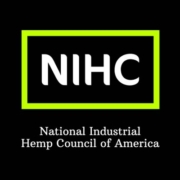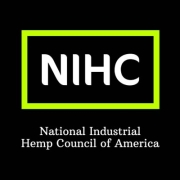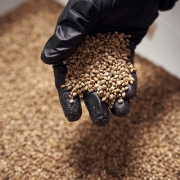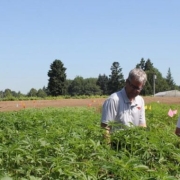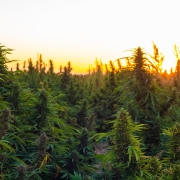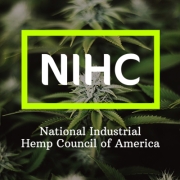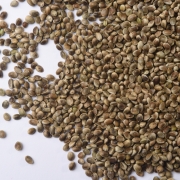Tag Archive for: Agriculture
Dear Chairwoman Stabenow and Ranking Member Boozman:
On behalf of our members nationwide, the National Industrial Hemp Council of America (NIHC) offers its recommendations, enclosed with this letter, for incorporation in the 2023 Farm Bill toward ensuring the viability and global competitiveness of U.S. domestic hemp production. The 2018 Farm Bill re-legalized the production of hemp, and before that, the 2014 Farm Bill authorized its research, but these new authorities have fallen short in enabling hemp to develop as a commodity at a significant scale. As Congress takes up our nation’s next Farm Bill, the time has come to apply the many lessons learned over the past decade and resolve these shortcomings.
Few if any crops have ever presented such a wide range of uses as hemp. Integral to human civilizations for millennia, and with countless innovative applications emerging at a dizzying pace, hemp produces high-protein foods and feeds from its seeds; wide-ranging industrial applications from its stalks, including textiles, paper, bioplastics, building materials, renewable energy, and advanced composites; and wellness products in high demand by consumers worldwide. Grown at scale, hemp offers an unparalleled opportunity for climate-smart agriculture, resilient rural economies, and increased domestic self-reliance in food security and manufacturing. But despite the best efforts by regulators and industry stakeholders, shortcomings in Federal law continue to squander these opportunities and portend hemp’s demise as a U.S. commodity if not resolved in the next Farm Bill. NIHC’s recommendations are aimed at avoiding such an outcome.
NIHC is the hemp industry’s DC-based trade association. We serve our members and the industry at large by integrating our industry’s expanding expertise with senior-level agricultural policy practice to deliver credible analysis and coordination on the full range of legislative, budgetary and regulatory matters impacting the hemp value chain. Headed by former USDA executives, senior Hill staffers and agricultural trade association leaders, we focus on building capacity for farmers, businesses, regulators and consumers across all segments of the hemp industry, to fulfill hemp’s promise as a keystone of American agriculture and as a driver of opportunity for all.
The 2018 Farm Bill re-legalized the production of hemp, and before that the 2014 Farm Bill authorized its research, but these new authorities have fallen short in enabling hemp to develop as a commodity at significant scale. As Congress takes up our nation’s next Farm Bill, the time has come to apply the many lessons learned over the past decade and resolve these shortcomings. Few if any crops have ever presented such a wide range of uses as hemp. Integral to human civilizations for millennia, and with countless innovative applications emerging at a dizzying pace, hemp produces high protein foods and feeds from its seeds; wide-ranging industrial applications from its stalks, including textiles, paper, bioplastics, building materials, renewable energy, and advanced composites; and wellness products in high demand by consumers worldwide. Grown at scale, hemp offers unparalleled opportunity for climate-smart agriculture, resilient rural economies, and increased domestic self-reliance in food security and manufacturing.
But despite the best efforts by regulators and industry stakeholders, shortcomings in Federal law continue to squander these opportunities and portend hemp’s demise as a U.S. commodity if not resolved in the next Farm Bill. With that decade of lessons in mind, and with the goal of unfettering this new yet ancient crop to fulfill its promise for American agriculture, the National Industrial Hemp Council offers the following recommendations for inclusion in the next Farm Bill:
1. FIT-FOR-PURPOSE COMPLIANCE TESTING.
- Dual hemp licensing: Differentiate “Industrial” (fiber and grain) from “Horticultural” (flower).
- Test products at point of transfer/sale: Consistent USDA controls on lawful transfer of hemp.
- Performance-based sampling for “Industrial,” pre-harvest testing for “Horticultural:”. Visual inspection of “Industrial” and statistically valid pre-harvest testing of “Horticultural.”
- Adopt the NASDA-recommended threshold of 1% total concentration of all tetrahydrocannabinols, to relieve farmers of undue risk and avoid false findings of non-compliance.
- Permanently remove requirements for DEA certification of hemp testing labs.
2. EQUITY AND OPPORTUNITY FOR ALL IN DOMESTIC HEMP PRODUCTION.
- Eliminate background checks and remove felon ban for hemp farming.
- Prohibit the re-criminalization of hemp.
- Designate hemp seed and hempseed by-products as feed for non-consumption animals.
- Enact “Safe Banking” for hemp.
3. NORMALIZE HEMP IN USDA RESEARCH AND SUPPORT PROGRAMS.
- Permanently dual-designate hemp as both specialty and commodity crop depending on the purpose for which it is grown.
- Direct USDA to include hemp in all subsidy and grant opportunities for which other commodity and specialty crops qualify, including research programs.
- Permanently authorize hemp as eligible feedstock for renewable energy research and support.
- Ensure USDA has access to adequate funding to administer hemp production in all 50 states;
- Increase USDA FAS MAP and FMD funding to increase promotion of US hemp exports.
- Establish and fund US Hemp Fiber Standards and Quality Act to create an ARS hemp structure and research center similar to the Cotton Structure and Quality Research Unit in New Orleans.
- Authorize and fund a properly staffed, USDA-led inter-departmental hemp working group and FACA committee that includes multiple agencies and a cross-section of hemp industry stakeholders.
1. FIT-FOR-PURPOSE COMPLIANCE TESTING.
One of the greatest hindrances to hemp production in the United States is the protocol for THC compliance testing. Though hemp has been produced overwhelmingly throughout its multi-millennial history for products of its seeds (grain) and stalks (fiber), which are biologically incapable of producing THC or any other cannabinoid, U.S. law currently requires THC testing of all hemp crops, including those grown for fiber and grain, but does not require testing of hemp products. This is the case even though THC levels can fluctuate slightly in all hemp crops due to conditions beyond farmers’ control, whereas finished products can be specially formulated in a controlled setting to contain specified amounts of THC and synthetic analogs. Thus, the current approach to hemp compliance testing carries undue risk to farmers, which has a chilling effect on farmer adoption and investment (particularly in fiber and grain), while having little bearing on the amount of THC in products entering the hemp market. Ideally, hemp should be treated like any other agricultural commodity and not subjected to compliance testing of crops in the field, but rather tested and certified as needed when the resulting products enter commerce, just like dairy, meat and cotton.
Nevertheless, NIHC recognizes that hemp, as a type of cannabis, elicits a range of stakeholder concerns that are heightened by its cultivation–especially horticultural cultivation of hemp for CBD production, which is difficult to distinguish from cultivation of marijuana. For this reason we propose to differentiate testing of crops grown for fiber and grain (“Industrial Hemp”) from testing of crops grown for flower and their cannabinoids (“Horticultural Hemp”), while establishing meaningful protocols for testing of hemp products upon entering commerce:
A. Fit-for-purpose hemp licensing – Differentiate “Industrial Hemp” (fiber and grain production) and “Horticultural Hemp” (flower/cannabinoid-only production):
Direct USDA to develop regulations for issuing two license types nationwide; states can opt out of dual licensing and authorize only one or the other. Industrial Hemp: fiber and grain crops and products thereof, grown only outdoors (broadacre); USDA to define quantitative criteria, such as plant density, in rulemaking. Horticultural Hemp: flower crops, nursery stock and products thereof. Any hemp crop not meeting Industrial Hemp criteria is Horticultural Hemp. Include a research sub-license type for companies that are developing and producing seeds for replanting purposes.
B. Fit-for-purpose testing of hemp products at point of transfer/sale:
Direct USDA to develop regulations for consistent nationwide controls on lawful transfer of hemp products: ‘Industrial Hemp License:’ (verifying that crop is from licensed producer) must accompany all transfers regardless of type—industrial or horticultural. ‘USDA-Compliant Hemp Certificate:’ (establishing THC compliance, similar to how USDA certifies dairy, meat, etc.) must accompany all transfers containing flower or flower derivatives, regardless of license type—industrial or horticultural. ‘USDA Hemp Processor License:’ must accompany in-process flower derivatives (concentrates) that exceed the Federal threshold for THC in hemp; not for retail sale, and lawful for possession and transfer only by holders of the USDA Hemp Processor License.
C. Fit-for-purpose performance-based sampling and testing of hemp crops.
Direct USDA to apply statistically valid testing of horticultural hemp crops to ensure against illicit marijuana production, and to apply its existing performance-based sampling authority nationally for industrial hemp crops: Performance-Based Sampling for Industrial Hemp crops: Direct USDA to apply its existing authority for performance-based sampling nationwide, with visual inspection criteria for Industrial Hemp Pre-Harvest Sampling and Testing for Horticultural Hemp crops: Direct USDA to update its existing pre-harvest sampling and testing regulations to ensure that compliance determinations are made based on statistically valid confidence intervals (margins of error) for estimated THC levels, accounting for in-field sampling variance as well as laboratory measurement uncertainty. Performance-Based Sampling Option for Horticultural Hemp crops: Direct USDA to standardize it existing authority for performance-based sampling as an available alternative to pre-harvest sampling and testing for horticultural licensees based on 3 prior years of compliant tests, and for immature nursery stock. Fund research to determine potential applicability of variety/seed certifications for use in performance-based sampling.
D. Adopt the NASDA-recommended threshold of 1% total concentration of all tetrahydrocannabinols.
To relieve farmers of undue risk and avoid false findings of non-compliance. Another major factor causing compliance testing to be a hindrance is the definition of hemp as provided in the 2018 Farm Bill, which is based on a 0.3% delta-9 THC threshold for compliance. The originators of this 0.3% figure explicitly acknowledged it as arbitrary in the peer-reviewed scientific literature where it first appeared (Small and Cronquist, 1976), and reiterated this acknowledgment in public statements in 2021 while further recommending 1% as a more appropriate threshold. The current definition also does nothing to limit the entry into the hemp market of products containing other intoxicating tetrahydrocannabinols besides delta-9. Finally, the natural range of variation of hemp plants in the field makes it problematic at best to determine non-compliance with statistical validity at such a minuscule quantity. If challenged in court, the overwhelming majority of non-compliance determinations made under the existing definition would likely not meet the minimal burden of proof for sanctioning private property as required by the Administrative Procedures Act. To rectify these problems, NIHC supports the resolution adopted by the National Association of State Departments of Agriculture, by a 45-3 vote, to revise the definition as follows: The term “hemp” means the plant Cannabis sativa L. and any part of that plant, including the seeds thereof and all derivatives, extracts, cannabinoids, isomers, acids, salts, and salts of isomers, whether growing or not, with a total tetrahydrocannabinol concentration of not more than one (1) percent on a dry weight basis.
E. Permanently remove requirements for DEA certification of hemp testing labs.
Since promulgating its regulations implementing 2018 Farm Bill direction for domestic hemp production, which includes this provision, USDA has wisely exercised its administrative discretion to suspend this requirement every year, lest it hobble the industry for lack of sufficient DEA-certified laboratory capacity around the country. Labs with USDA-approved accreditations, which can be found in greater abundance around the country and also newly established at lower cost, can be relied upon to provide adequate verification of THC levels for determining compliance. Congress should thus eliminate the DEA certification requirement in favor of this approach.
2. EQUITY AND OPPORTUNITY FOR ALL IN DOMESTIC HEMP PRODUCTION.
A. Eliminate background checks and remove felon ban for hemp farming. No other agricultural commodity requires such a policy, which most impacts rural and underserved communities, reinstitutionalizes the racial injustices of the War on Drugs, and harkens to the long history of racial discrimination in American agriculture that USDA and the nation at large still struggles to overcome. Such restrictions should not be permitted in Federal or State law. Furthermore, farming is a productive pathway for people convicted of felonies to re-engage in their communities. No correlation has been shown to indicate that former felons are any likelier to commit crimes in connection with hemp farming than in connection with farming of any other crop.
B. Prohibit the re-criminalization of hemp. As with the discriminatory undertones of banning felons and requiring background checks for hemp licensing, numerous efforts are underway at the state level that portend to restrict interstate commerce in Federally lawful hemp and hemp products, and in some cases even to outlaw their possession. While States have the prerogative to regulate sales that take place within their borders, current law prohibits States and Tribes from impeding the transport of Federally lawful hemp in interstate commerce, and this should be amended to prohibit impeding the possession of Federally lawful hemp as well. Otherwise, injustices that remain prevalent in narcotics enforcement may extend into a substance whose legality is fully ensconced in Federal law.
C. Designate hemp seed and hempseed by-products as animal feed for pets, specialty and exotic pets, and horses. Just like other commodity crops that serve the protein and oil feed markets, hemp seed based ingredients should be excluded from the 1958 Food Additive Petition requirements. The exclusion should be limited to ingredients that are: sourced from only from hemp seed harvested from Federally compliant crops; are for non-consumption species (companion, exotic, equine, and any other non-consumption animals); possess no added cannabinoids; and comply with existing animal feed manufacturing processes, labeling requirements, and product registrations. Additionally, timelines for applications to the FDA’s Center for Veterinary Medicine (CVM) should be shortened: FDA responses should be required within 60 days of submitting initial and each subsequent response, and final decisions should be required within a maximum of two years. Budgetary support should be granted to the FDA-CVM to meet these obligations.
D. Enact “Safe Banking” for hemp. Amid fitful efforts to normalize banking for cannabis businesses despite the continuing prohibition of marijuana under Federal law, the hemp industry—especially small businesses and enterprises in rural and underserved communities—continues to suffer from the same lack of access to banking, advertising, and other essential business services. Despite the Federally legal status of the products they sell, hemp businesses are forced to pay onerous fees for these essential services; if indeed they can even access them at all. Payment processors, lenders, investors, media outlets and other service providers need to know that they are protected against the possibility of sanctions for serving businesses that engage in hemp commerce; no other agricultural commodity faces such difficulties and the Farm Bill is an appropriate vehicle to rectify this problem.
3. NORMALIZE HEMP IN USDA RESEARCH AND SUPPORT PROGRAMS.
- Make permanent Congress’s FY22 budget direction to USDA to dual-designate hemp as both specialty and commodity crop depending on the purpose for which it is grown.
- Direct USDA to include hemp in subsidy and grant opportunities for which other commodity and specialty crops qualify, including research programs.
- Permanently authorize hemp as an eligible feedstock for renewable energy research and support.
- Ensure USDA has access to adequate funding to administer hemp production in all 50 states in the event more States terminate their hemp programs (in favor of USDA’s improved hemp regulations).
- Increase USDA FAS MAP and FMD funding to increase promotion of US hemp exports in order for the Market Access Program and Foreign Market Development Program to more adequately promote the global competitiveness of U.S. hemp.
- Establish and fund US Hemp Fiber Standards and Quality Act to create a USDA ARS hemp structure and research center similar to the current USDA-ARS Cotton Structure and Quality Research Unit in New Orleans,
- Authorize and fund a properly staffed, USDA-led inter-departmental hemp working group and FACA committee that includes multiple agencies, departments and a representative cross-section of hemp industry stakeholders, chartered to advise on rulemaking, regulatory implementation, support programs and trade issues within USDA and other Departments.
##
The National Industrial Hemp Council of America provides high-quality networking and resources for its members, from farm to consumer. Its leadership is composed of leading international, federal, state, private industry, and government professionals throughout the sector. The organization is dedicated to furthering market development, assisting members in entering the industry, and educating consumers on industrial hemp and its applications. For more information, please go to www.nihcoa.com.
WASHINGTON, D.C. – The National Industrial Hemp Council of America (NIHC) released the following statement responding to a limited German study indicating that dairy cows fed hemp silage showed adverse effects:
“We strongly believe that decisions about the use of hemp animal feed should be soundly based on science that studies the effects of hemp feed in animal diets and on their well-being.
“It’s important to recognize that what is being reported on is not an animal feed trial conducted by animal scientists who assessed nutritional aspects of hemp-based animal feed. Rather, this trial was conducted by risk analysts assessing the impact of cannabinoids from both low and artificially high-THC hemp.
“Perhaps the most important point to make with regard to food safety and animal welfare is that the study says multiple times that no adverse effects in behavior were observed in animals fed low-THC hemp silage. The sensationalist headlines from this trial are misguided and wrong.
“We understand and share the concerns about cannabinoids entering the nation’s food supply. However, we believe it’s important to clarify that hemp animal feed is made from the plant’s seeds and stalks, which are biologically incapable of producing any cannabinoids, unlike the hemp biomass used in this study. The distinction should be made clear to policymakers and the public: hemp seeds and stalks comprise hemp-based animal feed, and they are specifically excepted from the Controlled Substances Act because they produce no cannabinoids.
Government authorities around the world, including the FDA, have accordingly acknowledged these parts of the plant to be safe for human consumption (GRAS).
“Hemp is an environmentally responsible and domestically grown feed alternative. Considering the higher costs associated with the worldwide grain shortage due to the war in Ukraine, a sustainable American hemp crop is a nutritious source of animal feed and can lower the cost of farming feed inputs. This would be good news for farmers and consumers who now struggle with the higher costs of milk, meat, and eggs, and we look forward to working with the FDA and the livestock industry on science-based solutions that protect animals and consumers.”
About NIHC
The National Industrial Hemp Council of America provides high-quality networking and resources for its members, from farm to consumer. Its leadership is composed of leading international, federal, state, private industry, and government professionals throughout the sector. The organization is dedicated to furthering market development, assisting members in entering the industry, and educating consumers on industrial hemp and its applications. For more information, please go to www.nihcoa.com.
# # #
If you missed it, let us catch you up.
The 2021 Hemp Business Summit was a jammed-packed event that included multiple announcements, current hemp data, all-around subject matter expertise and networking. Discussions on both the stage and in the hallways empowered attendees to consider their part to move our industry forward. NIHC is proud to facilitate critical discussions and progressive thought leadership about hemp.
Attendees from across the country converged to create industry partner relationships for their needs and gain insight to overcome current market challenges. In fact, one attendee reported that for their emerging business, they had initiated critical conversations with two large-scale hemp producers, as well as established a better understanding on how to secure funding through the financial presentations. Others reported making connections that will move the needle on their industrial hemp endeavors.
NIHC President and CEO Patrick Atagi opened the meeting with a vision of unity. “Who is NIHC?” he asked. “We are a broad group of members of varied interests who are all working to build a vibrant global industrial hemp marketplace. We are in this together. We are global.”
With that, Atagi introduced the new NIHC brand look that includes a new logo (seen below), a new website, a new magazine – Hemp Industrial™ – and other elements, all developed with hemp’s global stage in mind. The new brand and messaging showcase our industry as sustainable, climate-smart and agriculturally rooted in history looking towards a progressive future. As we move forward, our advocacy efforts at home establish NIHC as an authoritative voice for hemp on the global stage as we facilitate the international market development for American hemp growers and innovators.


Hemp Business Legal Considerations Continue
The event kicked off with a discussion on the regulatory environments that the industry must navigate, which then led to broader topics on business and opportunity, both short and long term. Representatives from the law firm and a top 2021 Hemp Business Summit sponsor Gordon & Rhees Scully Mansukhani spent time framing the current regulatory landscape from business, commerce, and employment perspectives to help attendees in “reading the hemp leaves” while navigating local, state, and federal directives.
Can We Overcome the Challenges of Banking Hemp?
With that foundation laid, Todd Van Hoose, President and Chief Executive Officer of Farm Credit Council, shared the progress and pain of financial institutions and their hemp policies. “We will stick with the growers, but it is tough,” said Van Hoose. “For lenders, it takes a while to establish guidelines for new lending.”
“Now that there are more frontline standards, bankers can get their processes in order, while managing the risks,” he emphasized.
“I think we need to look at progress made,” says Atagi. “The fact that financial institutions are looking at hemp financing is critical; in 2019, there was not so much opportunity.”
Melissa Marsal, EVP/Chief Operating Officer of West Town Bank & Trust, and Sundie Seefried, President and Chief Executive Officer of Safe Harbor Financial, both presented detailed accounts of what their banks look for in hemp business banking partners. The bottom line: Be open and honest on your business, have a clear vision to accomplish goals, and have consistent business practices. “Hemp is not black and white, and a bank cannot bank what they don’t understand,” said Seefried. Hemp banking is expensive to manage, requires more paperwork to be filed, and takes longer to onboard a client. Therefore, hemp clients can expect to pay higher fees. Yet, with more regulatory certainty, she says this will change.
“What regulators say about high risk, we have to follow,” notes Marsal. Ultimately, she says, “We want to offer anything we offer to other businesses. Our whole mission is for you to have a safe banking experience.”
Academic Experts Speak about the Future of Hemp
Moving into discussion about hemp agriculture, Jay Noller, Director, and lead researcher of Oregon State University’s (OSU) Global Hemp Innovation Center, and Lawrence B. Smart, Professor, Horticulture Section at the Cornell University School of Integrative Plant Science, presented research efforts that are making news. With OSU’s recent $10 million grant to explore Western hemp production, Noller says his center’s job is to “find where the brick walls, are and tear them down, don’t allow them to be built, or work around them.”
Smart spoke on plant research and getting viable feedstock into the hemp system. “A lot of evidence suggests that hemp growth depends a lot on genetics, not environment. Currently, you have to plant 2,000 plants just to get 20 compliant ones.” His research is geared to creating a library of germplasm to adapt hemp plants to grow successfully for breeders.
Hemp’s Sustainability
Steven Gluckstern, CEO & Chairman of Santa Fe Farms gave a presentation titled Sustainability: Carbon Sequestration, Carbon Credits, and the Hemp Industry. Hemp, Gluckstern says, “can be incorporated into thousands of products.” The Santa Fe Farms CEO talked about his vision of a hemp value chain that included human and animal feed, building materials, and paper. While he currently farms 1,000 acres, he told attendees his goal is to eventually farm one million acres. “An acre of hemp will store more carbon than an acre in the rainforest. This industry isn’t an afterthought; the carbon story can change that,” Gluckstern said.
The State Regulatory Environment
Attendees also heard from experts on what is happening with regulations at the state level. Tillery Sims of the Texas Hemp Growers Association, Blake Butler Executive Director of the Southeast Hemp Association and Courtney Moran, President and Lobbyist for the Oregon Industrial Hemp Farmers Association shared about their successes and navigating issues in the states. They discussed interstate commerce, ousting bad actors, engaging with governors and legislators, and cultivating the what is ultimately a decades-long hemp growing process forward. Moran, for her part, said that state regulators should note past successes and failures of neighboring states while making policy changes.
“If you don’t have adequate funding, nothing is going to work,” Moran says of state hemp plans.
Butler addressed the challenges of interstate commerce noting that there have been over 20 seizures of legal hemp in the southeast region. “We’ve won every case,” Butler said, “but we’ve never received the product back.” He also warned the hemp industry is hurting itself, telling attendees, “Regulators and legislators aren’t sure who to listen to. We must get on the same page.”
Panels and speakers on data and cannabis venture capital rounded out the day. Julie Lerner, Founder and CEO of PanXchange reminded the attendees to put the industry in perspective. “We need to have hard conversations of what we specifically want to ask of legislators,” she says.
Standards and the Future of Hemp
In a bit of NIHC news, the Council is spearheading an initiative to bring to market a set of standards to enhance consumer safety and regulatory confidence. Dr. Matthew Curran, Food Safety Director, Florida Department of Agriculture and Consumer Services, David Schmidt, Executive Director at AOAC International, Barry Carpenter, Food Safety Net Services (FSNS) and Kathleen May, CEO/Founder, Triskele Quality Solutions & Chair of ASTM’s International-D37-Cannabis Committee spoke on this new plan during the Industry Standards Panel.
Rounding out the day was a robust discussion about the future of the hemp business and how to go about what NIHC member and Delta Agriculture CEO, George Overbey described as “changing the world with hemp.” “There is a word to shape the future of the industry’s economy and the word is sustainable. We need to take hold of the opportunity that hemp represents, as a promise for our economy and our environment.”
And…that was just day one!
The USDA has awarded a $10 million grant to Oregon State University’s Global Hemp Innovation Center (GHIC) to define economic opportunities for industrial hemp in the Western United States.
The grant, which funds the five-year project, is funded by USDA’s National Institute for Food and Agriculture’s Sustainable Agriculture Grant Program and will study the economic opportunities for hemp in Native American and rural communities in Washington, Oregon, Nevada and California.
You can read the full brief of the grant here on the USDA website.
“We established the Global Hemp Innovation Center in 2019 to bring together a wide variety of stakeholders to address big unanswered questions about the hemp industry,” Jeffrey Steiner, associate director of the center said in a statement. “While enthusiasm for hemp has grown, there is still a tremendous lack of knowledge about the crop.”
NIHC President and CEO Patrick Atagi sits on the Executive Advisory Board of Oregon State’s Global Hemp Innovation Center. Oregon State University’s Global Hemp Innovation Center partners with NIHC, frequently lending data and scientific expertise as we advocate for and protecting the brand of hemp.
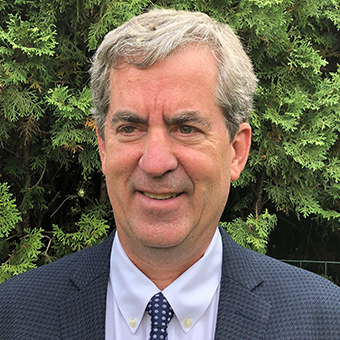 In what is sure to be a highlight next month in Washington, Jay Noller, the Executive Director of the Global Hemp Innovation Center, will be providing the keynote address at NIHC’s Hemp Business Summit.
In what is sure to be a highlight next month in Washington, Jay Noller, the Executive Director of the Global Hemp Innovation Center, will be providing the keynote address at NIHC’s Hemp Business Summit.
“As a member of the Global Hemp Innovation Center’s Executive Advisory Board, I’m excited at the possibilities this grant presents the entire hemp industry,” said Atagi. “From food, to fiber and grain, industrial hemp has the potential to prime the pump of our economy over the next generation while also setting the standard for climate smart agriculture. This grant will help showcase the potential of the hemp plant and I couldn’t be more pleased for Jay and Jeff and the entire team at Oregon State.”
The grant was announced by USDA Secretary Tom Vilsack as part of an investment of more than $146 million in sustainable agricultural research projects aimed at improving a robust, resilient, climate-smart food and agricultural system.

Delta Agriculture™ (Delta Ag) estimates it is the largest full-service provider of hemp in the United States. They aim to provide Fortune 500 companies with sustainable raw goods while focusing on the carbon negative properties of industrial hemp. The company’s clever new tagline, “Powering the Carbon Negative Future,” is more than just words and truly speaks to the vision behind their recently launched rebrand.
This is the core philosophy on which the company is building its brand and business.

Building from the Supply Chain Up
The founders of Delta Ag are supply chain experts. They saw the emergence of industrial hemp as an opportunity to build a supply chain from scratch — one more efficient and environmentally sustainable than any other. “Those opportunities come along very rarely, if ever at all,” says Nick Strawn, Chief Operating Officer, “and we saw that as an exciting challenge, especially given the industry’s significant potential for growth.”
The management team has extensive experience in the oil and gas and manufacturing sectors, specifically in developing and strengthening supply chains. They began investing in cannabis, focusing on developing a proprietary processing technology and associated intellectual property to build upon. They pursued CBD, as it was the immediate opportunity, but have had their eyes fixed on the long-term viability of industrial hemp fiber and grain from the beginning.
“We see hemp as a strong revenue stream because you can truly utilize the whole plant, thereby minimizing waste and costs,” added Graham Owens, President. “It is advantageous for everyone from farmer to product manufacturer to consumer.”
Many, both inside and outside the industry, treat hemp as a boutique crop. But from the beginning, Delta Ag sought to change that perception by scaling their operations with a big-ag commodity approach never before attempted within the industry. That is one of the many reasons the company chose to join the National Industrial Hemp Council (NIHC): The shared vision of jointly enacting the change needed to responsibly grow and sustain the U.S. hemp industry.
“We recently joined NIHC because we share similar philosophical values, and felt that together, as partners, we have the ability to influence change at the highest regulatory levels,” says Owens. “We see the impact NIHC has already made, and we want to be a part of that process.”
“We see opportunity in large industrial applications, but at the moment, the industry is fractured,” says Strawn. “We have managed to bring together a vibrant supply chain in a relatively short amount of time, up and down the marketplace, similar to what we did for oil and gas. While we initially focused on monetizing the flower, our sights are set on utilizing the whole plant and expanding our fiber and grain production.”
______
Delta Ag sought to change that perception by scaling their operations with a big-ag commodity approach never before attempted within the industry. That is one of the many reasons the company chose to join the NIHC: The shared vision of jointly enacting the change needed to responsibly grow and sustain the U.S. hemp industry.
______
Empowering Business Model
At the outset of 2020, Delta Ag was fully funded and ready to do business right as the pandemic hit. For a group of leaders who had weathered plenty of challenges before, COVID didn’t stop the Delta Ag team from building a network of farmers stretching from Delta, CO, to Slaton, TX, to Eddyville, KY that feeds their production.
“A lot of farmers jumped into hemp farming with big dreams,” says Owens. “Farmers were left out to dry. We recognized the value in actually partnering with farmers, trusting these experts to do what they do, and paying them what they deserve to farm the plant. They are the backbone of the entire company.”
“When farmers are contracted, Delta Ag builds a nearby processing facility and manages the harvest for the farmer with a proprietary model that takes pressure off the farmer. Our farmers use their expert ‘standard operating procedures’ to grow the plant, and we have learned a lot from them,” says Owens.
Hemp Feeds Economies
 The goal of Delta Ag is to lead the industry in producing high-quality hemp fiber, grain, and flower at scale. In fact, to their knowledge, they are the only ones currently doing at to this level.
The goal of Delta Ag is to lead the industry in producing high-quality hemp fiber, grain, and flower at scale. In fact, to their knowledge, they are the only ones currently doing at to this level.
“Each facility can dry and process approximately 60,000 to 100,000 pounds of product per day and 100,000 pellets per day of biomass,” says Strawn. “We sell our flower to extractors for the oil. They then sell the oil isolate to manufacturers.” Delta Ag recently announced the launch of its hemp fiber line, marking a transitional growth from leader in hemp flower production into a full-scale industrial hemp supplier.
But it’s not just production. The company is also focused on working with policymakers to develop the regulatory framework needed for the industry to thrive, starting with regulations around using hempseed for animal feed.
“We see the future of the industry on the grain and fiber side. In the case of animal feed, it is tricky,” says Owens. “You can get a smoothie that contains hemp-based protein. Yet, right now, due to restrictions on selling commercial hemp for animal feed, we can eat hemp, but we can’t feed our livestock and animals hemp. U.S. regulators say they need to see more data from studies from U.S. producers, despite much of the world having studied and used hemp for animal feed for decades.”
In December 2018, the FDA found that hemp seed-derived ingredients for use in human food — including hemp seed oil, hemp hearts, and hemp protein powder — were considered “Generally Recognized as Safe” (GRAS) for human consumption after careful evaluation. In fact, not only did the FDA approve these products as safe for human consumption, but hemp seeds are considered a superfood with immense nutritional value.
Yet, restrictions on hemp-based animal feed persist. The FDA has been slow to address it, and lawmakers continue to be confused about hemp and hemp-derived products. Despite the FDA recognizing hemp-derived foods as generally safe and studies having been conducted globally for years, the agency continues to claim the impact on the food supply chain has not been fully studied.
“There is a clear misunderstanding on how hemp-based animal feed would impact the human food supply chain,” says Owens. “The animal eats the feed, and then that animal becomes available for human consumption. The chicken-and-egg scenario is that the FDA wants market studies, but, without funding for such studies, it is difficult for the industry to conduct studies if the feed cannot be used in the first place. This is particularly frustrating considering the ban even extends to hemp being used as an ingredient in feed for animals not intended for human consumption.”
“Generally speaking,” says Owens, “our biggest regulatory obstacle is a lack of guidance from the FDA — an agency that has understandably prioritized addressing COVID over the past year and a half. The industry needs regulatory clarity, and we want to work with the NIHC and others towards achieving this goal.”
With recent freezes and protein shortages, this approach leaves our country’s food and beverage manufacturers very vulnerable. Delta Ag sees an opportunity for U.S. farmers to be world leaders in this segment and fill that void. “There is a worldwide feed shortage. American food prices are skyrocketing, and there is global fallout from this shortage,” says Owens. “We see a clear path forward to make U.S. hemp farmers the leading supplier of hemp feed. We could potentially lead the world out of this shortage, providing real jobs and economic stability and stimulation for rural American communities along the way.
______
“U.S. policymakers must position our farmers as the world’s foremost leaders in the production of industrial hemp – our nation’s food suppliers, environment, and families pocketbooks depend on it.”
– Graham Owens
______
Hemp’s Environment Benefit
Delta Ag’s tagline “Powering the Carbon Negative Future,” celebrates that hemp absorbs 100,000 tons of carbon dioxide directly from the environment with every 10,000 acres planted. Currently operating more than 5,000 acres of farmland in West Texas, Kentucky, and Colorado, Delta Ag is on target to plant 10,000 acres this year and scale to more than 25,000 acres in 2022 — reducing the carbon dioxide in the air by millions of tons in the process.
“Hemp has environmental benefits that are second to none,” says Owens. “Hemp is the ideal carbon sink. Not requiring a lot of water, which hinders other crops, hemp is uniquely capable of surviving droughts. It revitalizes soil, so it makes a great alternative crop and contains high levels of protein and nutrients. With a plant to harvest cycle of 4 months, it can keep farmers busy year-round, and the whole plant can be utilized, like no other crop.”
“Our team has years of experience of crafting supply chains to meet end-product manufacturers demands, and we are building a network of hemp producers to work with us on the effort,” says Owens. “While we see animal feed as a place where we can immediately make an impact with hemp [given the feed shortage], there are so many other applications such as bioplastics, paper and paper products, oils for body care products and food, and even industrial building materials. With the right regulatory framework, it is a billion-dollar crop.”
According to Delta Ag’s CEO George Overbey, “Hemp is a miracle crop. Delta Ag is harnessing the power of the hemp plant to make a carbon-negative future possible right here at home and one day, globally.”
Learn more at https://deltaag.com/
 NHIC is pleased to share that Delta Ag CEO George Overbey is a speaker at the NIHC 2021 Hemp Business Summit, speaking on, “A Path to Change the World, Starting with America’s Farmers.”
NHIC is pleased to share that Delta Ag CEO George Overbey is a speaker at the NIHC 2021 Hemp Business Summit, speaking on, “A Path to Change the World, Starting with America’s Farmers.”
Products Added to the Oregon Guide List for Pesticides and Cannabis
The guide list was updated August 3, 2021. The intent of the list is to assist growers in distinguishing those pesticide products whose labels do not legally prohibit use on cannabis (hemp and marijuana) from those that clearly do not allow use. The list is not an endorsement or recommendation to use these products in the production of cannabis or hemp in Oregon.
You can view the guidance from the Oregon Department of Agriculture here.
By Graham Owens
While Americans have only recently started to notice the increased prices of basic food staples like eggs, poultry, meat and milk, the writing has been on the wall for a long time among our nation’s food suppliers. The winter storm that hit Texas this year wiped out about $600 million in food, not to mention $300 million in long-term livestock losses. All of this is occurring while many Western states and regions – including West Texas – are engulfed in extreme or exceptional drought. Then, there’s also the ongoing global pandemic, which itself has been a stress test for global food supply chains.
These and other factors have collectively wreaked havoc on numerous supply chains and the effects will likely reverberate for years to come. Few are feeling the impact more than the grain market, which is critical to maintaining the livestock Americans depend upon to keep food on their tables and at a reasonably affordable price.
In a struggle to meet demand, many American operators are importing vast quantities of grain. One leading poultry provider was forced to secure more than 30,000 metric tons of Brazilian soybeans in order to feed its livestock. That’s right – Brazil. But aren’t soybeans a staple American crop? Historically yes: U.S.-grown soybeans typically account for over 40% of the world’s exports – which is why this illustration speaks volumes about the scarcity facing our nation’s farmers.
Although the feed shortage is a global problem not unique to the United States, our nation is uniquely situated to be a leader in solving the problem. And that solution can be found in the hemp plant – which ironically enough was illegal to grow in the U.S. until very recently.
Hemp has all of the nutritional traits of other grains used for animal feed – and then some. It is richer in nutrients than many compounds consumed by our livestock, which is why you’ll find hemp-based nutritional supplements in just about any grocery store. Hemp feed is high in protein, contains high amounts of omega-3 and omega-6 fatty acids, and it can be made into different forms of animal feed, including grains, cake, and meal. Several studies show that animals’ health improved when fed hemp-based diets.
Yet, despite hemp’s known nutritional value, despite the fact that its legal for human consumption, and despite the progress that has been made to reform laws surrounding hemp production, it remains forbidden as an ingredient in livestock feed because the Center for Veterinary Medicine (CVM), a branch of the U.S. Food and Drug Administration (FDA), has been slow to approve hemp for livestock purposes.
With hemp’s change in legal status ought to come a more concerted effort to use hemp to address the global livestock feed shortage. It is projected that there will be 201 million pounds of excess biomass in the supply chain prior to the 2021 planting season. On top of that, the FDA actually has rule-making power to issue an emergency declaration that would allow for hemp-derived animal feed until a longer term regulatory solution is finalized. The solution to the shortage is right in front of us and we can be tapped almost immediately.
That is why Delta Agriculture is leading an effort alongside industry leaders as part of the newly formed National Feed Consortium to urge policymakers to encourage hemp-based feed production in the United States, especially in the short term to address the global feed shortage. Doing so would not only provide much needed relief to American farmers struggling to feed their livestock, it would create jobs, support American hemp farmers, and also support American consumers by keeping the costs of food down. It’s a win-win-win-win solution.
Further, gaining federal approval for hemp to be used as animal feed would also provide researchers the much-needed real opportunities to study hemp feed’s effects on livestock and pave the way to potentially opening up a vibrant industry to U.S. farmers and feed producers.
U.S. policymakers must position our farmers as leaders in the production of hemp – our nation’s food suppliers and family pocketbooks will depend on it.
Graham Owens is President of Delta Agriculture, the largest industrial scale hemp raw goods producer in the United States.
Photo Courtesy of Delta Agriculture.
Shawn Hauser discusses the Hemp Road Traveled and the Road of Infrastructure Ahead
Shawn Hauser is partner in Vicente Sederberg LLP, as well as chair of the firm’s Hemp and Cannabinoids Department, where she helps cannabis and hemp businesses navigate the intersection – and often collision – between state and federal law. Her practice helps companies comply with hemp laws, food and drug laws, regulations and licensing, as well as provides them general business representation. “This is unique to our practice,” says Hauser. “By providing clients compliance guidance with state hemp and cannabis laws and an understanding of how cannabis laws may evolve, we help guide them into a more stable and successful future.”
Hauser has been in the cannabis space for almost 12 years. “After graduating from college at the University of Texas, I had a passion to get involved with cannabis reform. I come from multi-generations of psychiatrists who have been dedicated to mental health care, and understood that cannabis is often a safer and more effective treatment to treat many mental health conditions, but that the law needed to change to allow doctors to utilize and understand cannabis as medicine.”
Hauser came to Colorado in 2008 in the early days when caregivers of patients who were receiving medical cannabis treatment lacked a supporting legal system. “I began work on the legalization campaign when I met the partners from McAllister, Darnell & Gottlieb PC who were also working on the issue. They built the firm around it in 2010 and I joined as an associate attorney,” Hauser says. The firm was one of the first marijuana-focused law firms in Colorado.
In 2013, Hauser joined Vicente Sederberg where she continued her work. The firm set out to help shape laws that would work to create a responsible cannabis industry and included hemp. “In 2012, founders of the law firm were key drafters of Colorado’s Amendment 64 which legalizes marijuana possession for adults under state law and requires the state to establish a regulatory structure for retail marijuana. In that framework, we included the state legalization of industrial hemp.”
From that foundation, the firm has built a thriving hemp practice, which grew exponentially with the passage of 2018 Farm Bill. “In the hemp department, we do a great deal of policy work all over the country in addition to legal services, such testifying to the FDA as to the regulation of CBD, advising states in how to regulate hemp-derived cannabinoids in FDA’s absence, and addressing best practices for consumer safety,” says Hauser. “One of our goals is to see the FDA step up. We are passionate to ensure that hemp products are regulated appropriately and responsibility, and appreciate that the federal regulation of hemp sets the table for how all cannabis may be most appropriately regulated.”
“One of our goals is to see the FDA step up. We are passionate to ensure that hemp products are regulated appropriately and responsibility, and appreciate that the federal regulation of hemp sets the table for how all cannabis may be most appropriately regulated.”
“We do a lot of work with other industry stakeholders and have key alliances that complement our regulatory practice, such as our close alliance with Kleinfeld, Kaplan and Becker,” says Hauser of the Washington D.C.-based law firm who focuses their practice on Food & Drug Law and Advertising Law.
In the meantime, while all that comes to fruition, the firm helps clients navigate the patchwork of state regulations for cannabis and hemp. There are a lot of moving parts and complicated federal, state, and local laws relevant to setting up an industrial hemp or cannabis-based business.
“Usually, a client comes to us because they are in hemp supply chain, as a farmer, retailer or brand, and they want to know how to be compliant at the federal level in the light of the Farm Bill, as well as with the FDA and within the complexity of state laws,” says Hauser. She notes that businesses have more to consider than a normal business. They must set up proper corporate entities, negotiate contracts, ensure that business insurance is adequate (watching for exclusions unique to the industry), review marketing materials including product packaging and labeling, develop products within tight legal parameters, complete various safety studies, manage ingredients properly, set up proper production and supply and distribution chains that are complaint, and mitigate the unique risk inherent in the cannabis industry. There are also the environmental laws to be followed, especially on industrial hemp production. It is quite complex.
“The good news is that Colorado continues to serve as a model state for others to follow,” says Hauser. “We are leading the way in hemp. Our governor has done an outstanding job to help us get leaps ahead from when we started. We have a level of infrastructure, agency expertise, and informed and effective rulemaking processes that is unparalleled, with state leadership and industry dedicate to having the most responsible and effective robust hemp program. Governor Polis has organized stakeholder groups for every aspect. Top universities and ag folks are quickly taking things to next level. We are bolstering state industrial hemp companies through incentives to build processing facilities in Colorado to make things like concrete and hemp plastics, all game changing for the planet and industry.”
Once the federal framework is complete, Hauser sees the U.S. as a major market on the world hemp stage. But the road to accomplishing this is slowly working its way out in equalizing state to state in the rules for production and sale of consumer products, and in developing the infrastructure and research needed to support a true industrial hemp industry. “Hemp having varying sets of rules for production and sale state to state is one the industry’s biggest barriers. The failure of the FDA to effectively regulate products leaves an emerging market without regulation to guide it,” she says.
“Right now, with CBD and consumable hemp product regulations, many states regulations conflict with federal law, but federal law is generally not enforced absent companies making serious drug claims,” says Hauser. It makes it difficult for states to enforce, creates unique legal exposure to businesses who follow federal lay but violate state law or vice versa. It also makes investors leery, creating banking and insurance conflicts.
In the future that Hauser is advocating for she sees a healthier hemp world. “I see federal legalization and development of a vibrant U.S. cannabis and hemp industry that includes broader acceptance of cannabis as medicine and as an alternative to alcohol, as well as a healthy dietary supplement, ingredient in foods and cosmetics as appropriate, and a natural alternative to more harmful ingredients currently used. Hemp is revolutionary and can be used in animal feed, plastics, fuel, all kinds of products. It can have a role in reversing climate change. There are so many uses, we have only seen the tip of the iceberg.”
Levi’s Commitment to Sustainable Agriculture an Example to Corporate America
It’s been a slow week in Washington DC with Congress on recess and an absence of activity happening at the regulatory level in recent weeks. However, the market never takes a recess as it continues to recognize the consumers preference for sustainability and corporate responsibility.
Case in point, Levi Strauss Company late last month unveiled its “Buy Better, Wear Longer” campaign to address how consumers buy too many clothes; don’t wear them long enough; and, eventually discard garments. The company believes this practice leads to greater pollution and environmental unsustainability.
“Ultimately, Levi’s® denim is meant to be worn for generations, not seasons,” Jen Sey, brand president of Levi’s, said in the companies press release kick starting the campaign.
One of the commitments to sustainability practices that Levi’s has made is offering products derived from hemp fiber. Their goals are to reduce the overall impact on climate with more sustainable production practices. This includes investing in new materials (i.e. hemp) and new production practices such as their new “Water<Less” technology. While it’s good to hear Levi’s making that kind of commitment, it’s having an even larger effect than the even the company might realize.
Levi’s says in their press release announcing the “Buy Better, Wear Longer” campaign that their manufacturing practices have resulting in the saving of nearly 4 billion liters of water and it has led to the recycling of nearly 10 billion more liters. That’s just for the manufacturing process and by using hemp as a fiber; the company is also seeing affects at the farm.
In comments filed to the USDA last week, NIHC recommended that the USDA take a science-driven approach to hemp and consider data that shows hemp is a less water intensive textile. We can find the data by looking to partners in Europe. For example, the Stockholm Environment Institute says that growing hemp requires half as much water as cotton. Beyond reducing water usage, The European Industrial Hemp Association says that every 100 acres dedicated to hemp can sequester up to 15 tons of carbon dioxide.
Therefore, companies that are committed to sustainability initiatives like using less water and curbing carbon dioxide are also making a change further down the supply chain and potentially a greater impact than they might realize. At NIHC, we believe that’s a good thing.
“As a whole, ‘Buy Better, Wear Longer’ is meant to evoke a sustainable future where companies and consumers around the world come together to rethink fashion,” Levi’s says in a press release. “And Levi’s® offers the kinds of products that are there with you for the long haul.”
And with those kinds of commitments, corporate America can ensure that it’s not just the products that are with us for the long haul, but the long-term health of our environment too.
To learn more about the Levi’s “Buy Better, Wear Longer” campaign and the company’s commitments to sustainability, click here.
To be a part of the discussion on the future of industrial hemp, make sure to register for NIHC’s 2021 Hemp Business Summit. Sustainability and other forward-thinking strategies will be the focus as we all continue make headway towards a vibrant and profitable industrial hemp economy.
Tag Archive for: Agriculture
Nothing Found
Sorry, no posts matched your criteria

